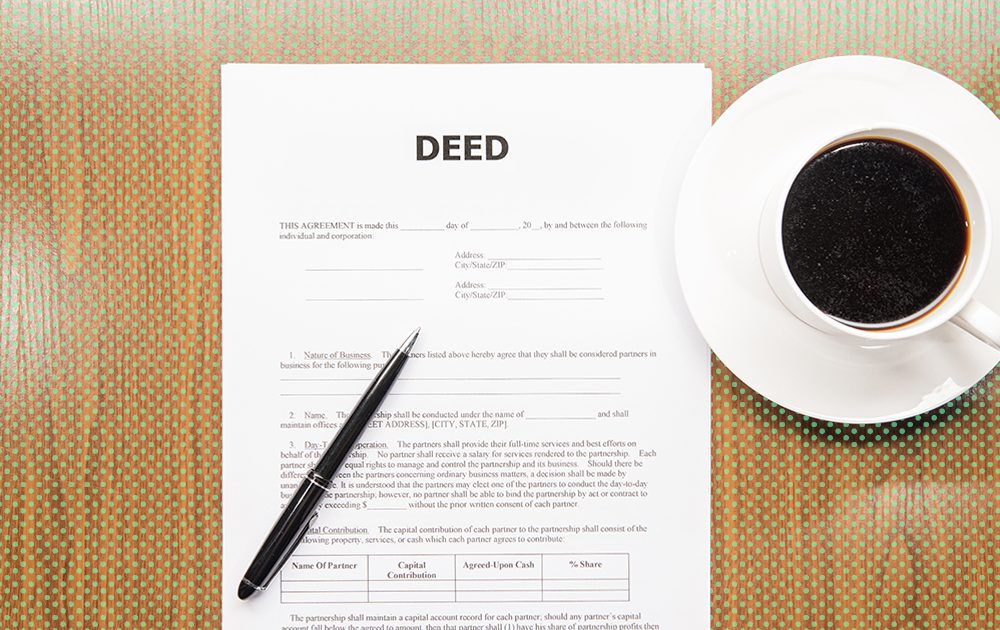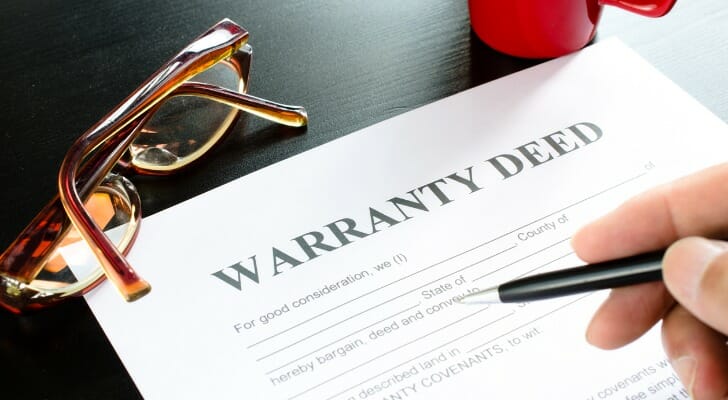A warranty deed is a type of real estate contract in which one party grants another the right to sell their property under certain conditions. In exchange, the buyer promises to repair or maintain the property for a certain period of time.
A warranty deed is an agreement between two parties; it does not require other legal documents such as deeds and mortgages.
It’s also an effective way for buyers who are cash-strapped to purchase property without having to pay for mortgage insurance or a lender’s inspection fee. A warranty deed can be useful for many different types of properties, such as homes, commercial properties, farms, and vacant land. The following explains more about this type of real estate contract:
What is a Warranty Deed Used for?

A warranty deed is often used to transfer real estate with an existing mortgage. While a warranty deed doesn’t operate like a mortgage, it does provide the seller with a certain level of protection.
A warranty deed provides a way for a seller to transfer ownership of their property to a buyer without having to sell the property to the bank or mortgage company. The seller transfers ownership of the property to the buyer, with a warranty deed agreement in place.
The warranty deed agreement, or the warranty deed contract, outlines the conditions of the sale, like when the property will be sold, how, and to whom. The seller and buyer may also opt to include a warranty deed provision that states the seller will repair the property for a certain period of time.
A warranty deed is a type of real estate contract in which one party grants another the right to sell their property under certain conditions. The buyer in return promises to maintain or repair the property for a certain period of time.
How a Warranty Deed Works?
A buyer who acquires a real estate property with a warranty deed contract lends the seller the purchase price and agrees to maintain the property for a certain period of time. If the buyer defaults on the agreement, the seller can sue the buyer for damages.
If a property with a warranty deed agreement goes into foreclosure, a bank or investor might take ownership of the property without paying the lender’s loan. A bank or investor who buys a property with a warranty deed contract can foreclose on the property and sell it at a public auction. While a bank or investor does not own the mortgage, it can take possession of the property until it’s in a position to regain the loan.
Types of Warranties Deeds
There are two basic types of warranties deeds: express and implied warranties. An express warranty is stated explicitly in a warranty deed contract. An implied warranty is implied simply by the fact that a seller is selling the property.
An implied warranty of habitability is implied when a seller sells a property, even if the buyer is willing to repair the property. The seller must have kept the property in a habitable condition. Other implied warranties might apply if the seller is transferring real estate that isn’t in a condition fit for human habitation.
If the seller is transferring a vacant lot, the warranty of good-faith transfer gives the buyer some protection.
Example: A Property with a 6-Month Warranty Deed
A seller who wants to sell a property with a warranty deed agreement transfers ownership to the buyer. The seller also includes a warranty deed clause in the sale agreement. This warranty deed clause states that the seller is giving the buyer a warranty deed for six months. Under the warranty deed clause, the buyer must maintain the property and repair any structural damage.
If the buyer doesn’t maintain the property, the buyer must pay for any structural damage. The warranty deed clause also states that the warranty deed is in effect for six months. The buyer and seller might choose to use a six-month warranty deed because it’s a common warranty deed length.
Considerations when using a Warranty Deed
Legally Binding – A warranty deed is not a document that exists by default. You must have a written agreement. If a buyer’s property with a warranty deed falls into a state of disrepair, the buyer can’t walk away from the agreement. The seller can sue the buyer for breach of contract. – Buyer’s Responsibility – When a buyer purchases property with a warranty deed, the buyer is responsible for maintaining the property.
If a buyer refuses to maintain the property, the buyer could end up paying for any structural damage. – Seller Protection – A warranty deed provides some protection for the seller because the seller can’t be held liable for damages to the property. This protects the seller from potentially losing the property if the buyer doesn’t maintain the property.
Conclusion
A warranty deed can be a great option for cash-strapped buyers who want to purchase a property without going through the hassle of a mortgage. It’s important to understand how a warranty deed works so you don’t find yourself in a situation where you’re stuck with a property you can’t afford to maintain.
A warranty deed can work well in some situations and be a disaster in others. Before entering into a warranty deed agreement, carefully consider the benefits and drawbacks of the agreement so you can make an informed decision. Keep in mind that a warranty deed doesn’t provide the same level of protection as a mortgage loan.
If the property has issues, such as a major structural issue, the buyer may be unable to repair them. The best approach is to understand the warranty deed contract and have a plan in place should the warranty deed agreement turn into a disaster.






